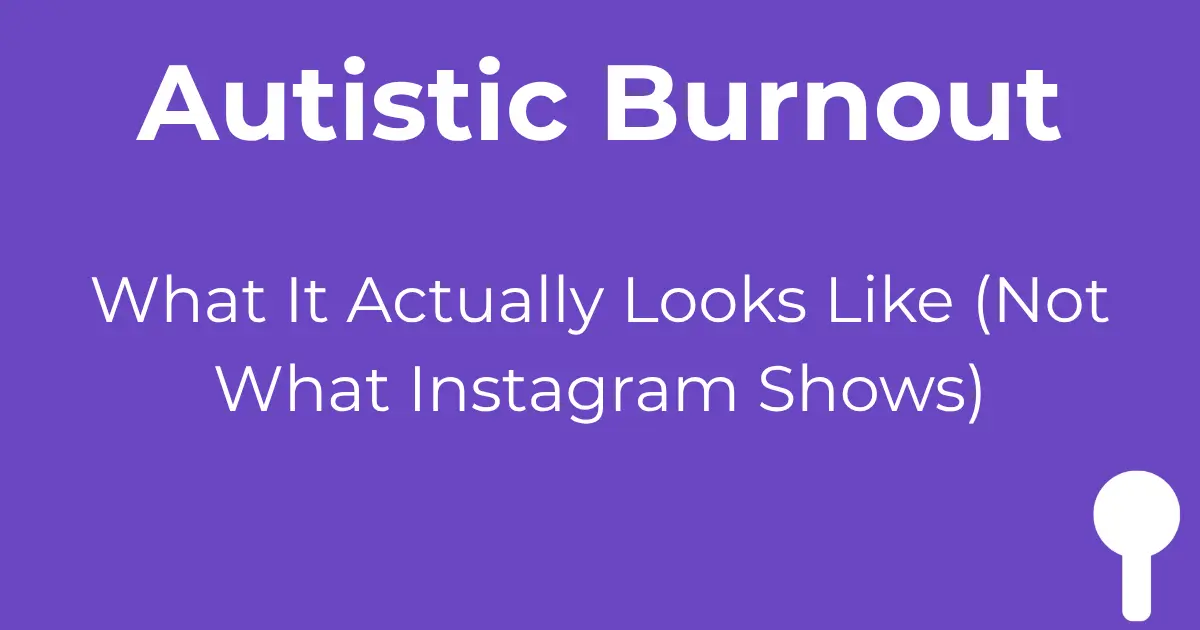
What Autistic Burnout Really Looks Like (Masking + Sensory Overload)
A lot of people assume burnout is mood-related. That we're just having an "off day" and need to "socialize more." That couldn't be further from the truth.
For me, autistic burnout is severe exhaustion from sensory overload and environmental factors.
Masking my autistic traits all day at work compounds the exhaustion—pretending to be neurotypical while already dealing with sensory overload drains my energy even faster.
Loud noises, being sensitive to touch. Running outside is exhausting for me because of small bugs and sensations on my skin—sudden and overwhelming, draining energy quickly.
What Burnout Actually Looks Like
My tolerance for further sensory input is drastically reduced. Sudden touches or someone shouting regularly cause multiple meltdowns throughout the day. Physically taxing.
What becomes impossible: Reading texts. Studying at home. Any form of communication is extremely difficult. This is skill regression—abilities I normally have just disappear.
My cognitive stamina is completely drained. Remembering names, factual information, certain sounds—very tedious.
How Long It Actually Lasts
People think it's a "spur of the moment" thing. Something that will pass in just a few days.
In reality? For me, It takes several months of continuous sensory relief to actually feel better. Recovery from severe autistic burnout can take years.
It lasts far longer than they realize.
The Worst Advice
"Talk more." "Find something fun to do."
They don't understand it's literally impossible to do that on 0 energy. Small talk is exhausting for us as it is. More of that isn't going to help.
What Actually Helps
Reduce as much cognitive demand as possible. No strict meal routines. No efforts to "talk more" with family. Time alone to stim and relax in a calm and predictable environment. This is why I track my energy daily.
How Tracking Helps
Being aware of what factors contributed to my low-spoon days. During my warehouse shifts Friday through Sunday, I noticed the bright fluorescent lights near my work station were draining the majority of my energy.
Now I always bring Theraspecs (light-sensitivity glasses) before arriving at work. I keep them on the entire day.
Without them, I leave work already on the edge of meltdown.
Tracking showed me the pattern. I made the adjustment. It helps.
I'm Omari, a 23-year-old autistic adult who's been managing chronic burnout for 5+ years while working warehouse shifts.
This is why I'm building Spoons. To see what's actually draining me. To make changes that actually work.
Launching April 2026. getspoons.app - One email when it's ready. No spam.
— Omari
Note: I'm sharing my personal experience as an autistic adult, not medical advice. If you're experiencing severe burnout or crisis, please consult a healthcare provider familiar with autism.
